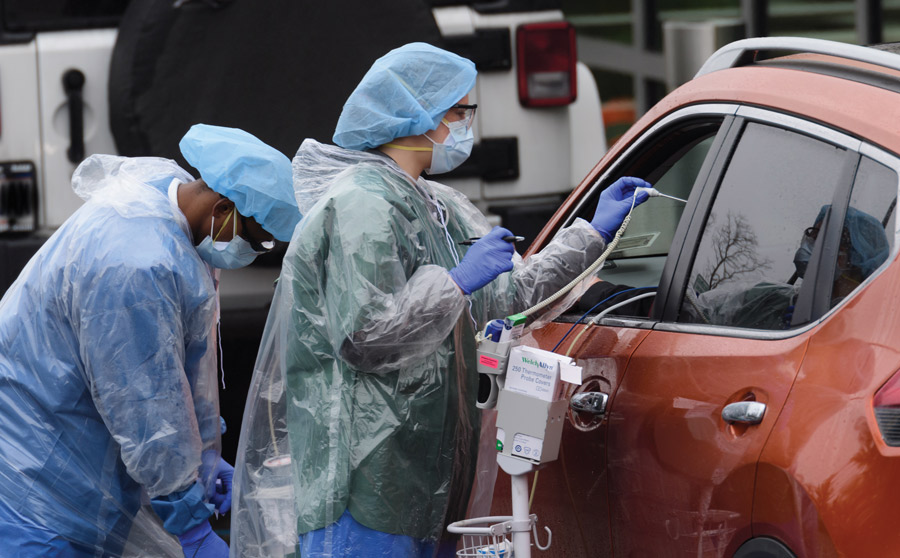There is currently no clear consensus for when it’s safe to operate on patients who are recovering from COVID-19. A baseline was set in March with the publication of an international, multicenter study by the enormous COVIDSurg and GlobalSurg Collaboratives (osmag.net/AEg5Xs). The largest collaborative surgical study to date compared more than 140,000 patients in 116 countries who underwent elective or emergency surgeries in October 2020, with the goal of determining the optimal length of delay for recovering COVID-19 patients to undergo surgery.
The data overwhelmingly identified the sweet spot as seven weeks from initial diagnosis. For patients who had surgery within zero to two weeks of infection, the adjusted 30-day mortality rate was 4.1%. At three to four weeks, it was 3.9%. At five to six weeks, it dropped to 3.6%. With surgeries performed seven or more weeks after infection, however, the rate plummeted to 1.5% — essentially the same rate of non-infected patients involved in the study. These findings were consistent across patients who would be considered low-risk and high-risk before the pandemic due to age and ASA physical status scores.
“This study’s findings should support informed shared decision-making by anesthetists, surgeons and patients,” write the researchers. “Decisions should be tailored for each patient, since the possible advantages of delaying surgery for at least seven weeks following COVID-19 diagnosis must be balanced against the potential risks of delaying surgery.”
In January, researchers at Oregon Health and Science University (OHSU) published a protocol that establishes strict timelines and extensive screening for patients recovering from COVID-19 (osmag.net/5rtJFQ). Paying particular attention to COVID “long haulers” — patients who have not fully recovered weeks or months after being infected — they screen for fatigue, respiratory problems, joint and chest pain, cognitive and sleep issues, and loss of taste and/or smell to better determine risk. Here’s how it works:
• Patients scheduled for elective surgeries under general anesthesia who have had a positive COVID-19 test undergo a comprehensive preoperative history and physical examination. COVID-19 symptoms must be completely resolved, with a minimum recovery time of four weeks for asymptomatic patients and six to eight weeks for symptomatic patients.
• The provider and the patient discuss the individual’s personal course with the disease, while the provider logs signs and symptoms of potential subclinical coronavirus-related complications and determines whether the patient has returned to a pre-COVID-19 baseline of health. Functional capacity is assessed, and oxygen saturation is measured. Patients older than 65 years and those previously hospitalized for COVID-19 undergo an Edmonton Frail Scale assessment.
• Patients are objectively tested based on the severity of symptoms they experienced, the complexity of the surgery and the need for general anesthesia. Cardiopulmonary function, coagulation status, markers of inflammation and nutritional status are tested because they have been shown to be disturbed by COVID-19. Abnormal values, the researchers say, may indicate incomplete resolution of the disease, which could lead to increased risk of surgical complications.
• Patients with normal results proceed to surgery after the minimum wait period, while those displaying any significant abnormalities trigger multidisciplinary discussion and consultation with other specialties as appropriate. These patients are provided detailed risk-benefit counseling and goals-of-care discussions before proceeding to surgery.
“We know that patients who undergo surgery with active COVID-19 infection fare significantly worse, but the timeline for recovery remains nebulous,” say the OHSU researchers. “The onus is on providers to view contracting and recovering from COVID-19 as they do any other serious medical event, with appropriate presurgical evaluation to prepare and optimize these patients for elective surgery.” OSM
.svg?sfvrsn=be606e78_3)

.svg?sfvrsn=56b2f850_5)